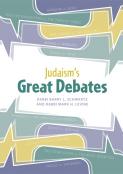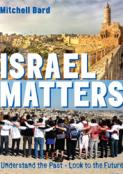- Home
- Play & Learn Home
- Online Enrichment
- Experience Modern Israel
- Israel It's Complicated
- Jewish and Me
- Jewish Holidays Jewish Values
- Jewish Values in Genesis and Jewish Values in Exodus
- Min Ha’aretz
- Our Place in the Universe
- Simply Seder
- The Prophets: Speaking Out for Justice
- Making T'filah Meaningful
- Make, Create, Celebrate
- Yom Haatzmaut Resources
- Hebrew Apps
- About The OLC
- What is the OLC?
- Introduction
- Get Started
- Resources
- OLC Content
- Parent Materials
- See My OLC Classes
- Store
When Jewish Values Collide, Debate in the Classroom Helps Students Explore More Deeply
Written by Behrman House Staff, 25 of February, 2013
Judaism teaches us to seek justice. Judaism also teaches us to act with compassion. What happens when someone commits a crime? Should we act with compassion or seek justice through punishment? How does Judaism guide us then?
As our students grow, it is important that we help them develop into critical thinkers. Students also need ways to deepen their understanding of Jewish values that goes beyond the guides to menschlekeit behavior such as feeding the hungry, visiting the sick, and helping others that were appropriate when they were younger.
We can help students by relying upon a method that has been a key ingredient of Jewish learning for centuries: argumentation and debate. When our students wrestle with the social issues of our time through the lens of conflicting Jewish values, they come to a deeper and more nuanced understanding of how Jewish thinking shapes us and helps us find ways to address seemingly intractable problems.
In today’s increasingly fractious world in which opponents are regularly vilified in order to make a point, we also help students by teaching them the skills to engage respectfully, to make an argument in the pursuit of truth: Machloket l’shem shamayim, an argument for the sake of heaven, which Pirke Avot tells us will make a lasting contribution.
Debate is a structure that adapts well to both the day school and the supplemental religious school environments, using the technique of the classic Lincoln-Douglas debates. Lincoln-Douglas debates are structured around a ‘resolution,’ the debate term for a topic of discussion that is stated as if one side of the dilemma is correct. During the debate, the affirmative side argues that the resolution is correct, and the negative side argues that it is incorrect.
Debate offers a format for bringing project based learning to your class, as students choose a problem to address, learn debate techniques, research their side of a resolution, and present their debate to the class or the community. They have an opportunity to consider and grapple with issues they hear about every day: should criminals receive the death penalty; should guns be banned; should women be able to wear tallit at the Western Wall.
Debate is an ideal format for middle school students. They are beginning recognize values conflict in the world around them and they benefit from a project approach.
If you want to try debate in your 6th-7th grade classroom, Judaism’s Great Debates, by Rabbi Barry L. Schwartz and Rabbi Mark H. Levine, together with its Lesson Plan Manual, provides a comprehensive guide to exploring Jewish values conflict through debate.
Classic debates from Jewish history are laid out in Lincoln-Douglas fashion, and can be used as scripts to learn debate technique. Conflicting values are highlighted and explored in depth. A free online supplement provides additional resources for students, including videos and interviews that drive home the ways conflicting values play themselves out in contemporary issues.
Some of the essential questions from Judaism’s Great Debates:
- Is collective punishment just?
- When is it justified for a nation to go to war?
- How far are we willing to go to defeat our enemies?
- What is the ideal relationship between religion and the state of Israel?
- How should we balance tradition and change in Judaism?
- Should community leadership be limited to a few highly qualified people, or shared among as many people as possible?
- How have women throughout Jewish history challenged women’s status in their societies?
- When must we stand up to authority?
- Is Torah law eternal and unchanging, or does it develop to accommodate changes over time?
- Do Jews need a Jewish state?
Review the free online supplement here.
Involve parents in a discussion of Jewish values in conflict. An adult version of Judaism’s Great Debates is available from the Jewish Publication Society.



